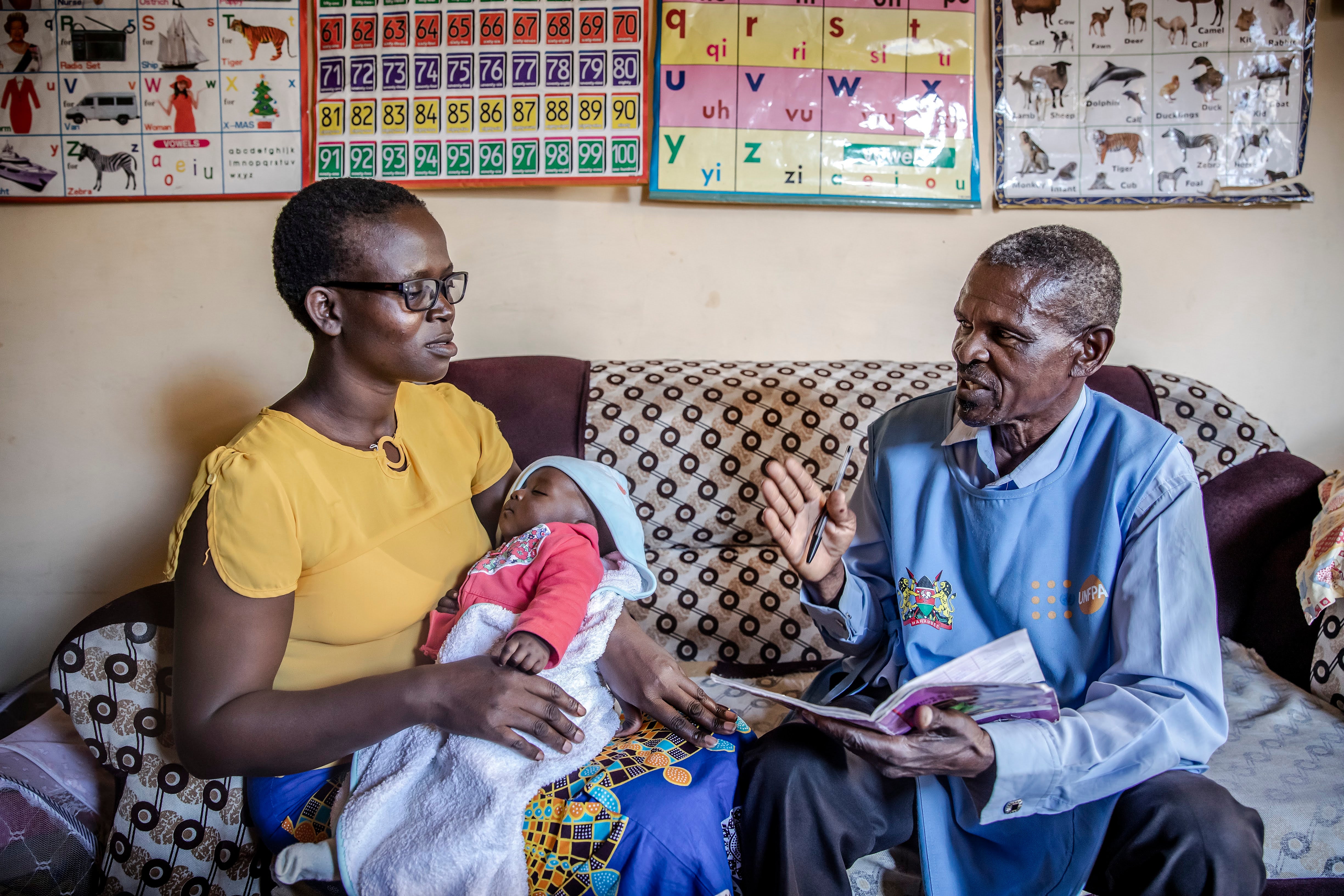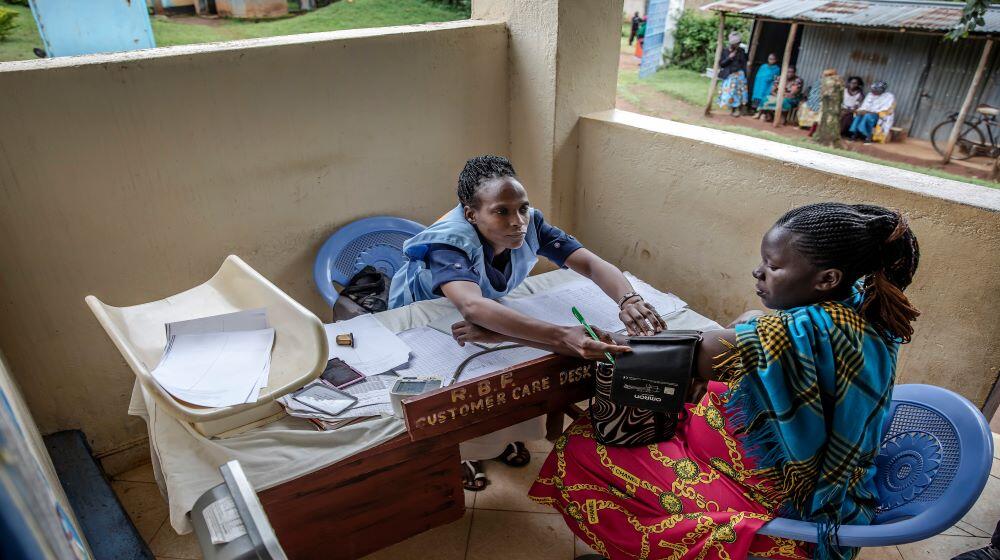In 2018, the government of Kenya introduced Universal Health Coverage in four pilot counties with the goal of improving access to priority healthcare services for all. “Kenya’s experience in introducing universal health coverage stands out because it works within a decentralized system, where the health service delivery function lies with county governments, while the national government conducts policy and regulatory functions,” says UNFPA Kenya Sexual and Reproductive Health Advisor Dr. Dan Okoro.
The pilot counties of Nyeri, Kisumu, Isiolo, and Machakos were selected for reasons including high burden of maternal deaths, high prevalence of communicable and non-communicable diseases, nomadic lifestyle in the arid and semi-arid lands, and high incidences of road traffic injuries.
With the availability of free services at primary and secondary level public health facilities, the counties reported improved utilization of health services, particularly among poor and vulnerable households, as the financial barrier was eliminated. The counties have also improved demand for services through intensified community engagement, advocacy, and social mobilization powered by strengthened community health service delivery structures.
UNFPA through the East and Southern Africa Regional Office and the Kenya Country Office held a consultative meeting with the pilot counties to critically assess how sexual and reproductive health services were delivered under universal health coverage while documenting lessons learned and best practices to inform the scale-up of the programme.
Progress on Maternal Health
Kenya’s maternal mortality ratio of approximately 362 deaths per 100,000 live births has been largely attributed to challenges in health service coverage, particularly among rural, urban poor, and marginalized population groups. Under the Universal Health Coverage pilot program, Kisumu county focused on strengthening community health services by hiring and deploying more community health volunteers who conduct household mapping, sensitization, and registration of beneficiaries onto health insurance platforms such as M-Tiba and Marwa, a social health insurance scheme launched by the county government. The community health volunteers also work to identify pregnant women, and facilitate referrals and follow-ups on antenatal care.

“Investments made in improving access to maternal health care under universal health coverage have resulted in a rise in skilled birth attendance and ante-natal care visits, which ultimately contributes to a reduction in maternal deaths in Kisumu county,” says Kisumu County Reproductive Health Coordinator Jane Awuor. “There has been a rise in the number of women attending the fourth ANC visit, from as low as 39% in 2017 to 64% in 2021.”
In both Nyeri and Kisumu counties, more primary healthcare facilities have been equipped, and healthcare workers mentored on the provision of basic emergency obstetric and neonatal care. The counties have also invested in the recruitment, training, and deployment of more healthcare workers, and the supply of health commodities including drugs. “Our goal is to ensure equity in access to services, so that no mother has to die when giving birth,” says Nyeri County Reproductive Health Coordinator Joyce Maina.
Reaching young people with sexual and reproductive health services
With 75% of Kenya’s population under the age of 35, ensuring universal access to sexual and reproductive health services is critical to minimizing the risk of unintended and unplanned pregnancies, STIs, HIV, and the removal of barriers to accessing sexual and reproductive health information. UHC pilot counties in Kenya have adopted innovative ways to reach adolescents and youth through peer-to-peer learning programs. In Machakos county, the creation of youth-friendly spaces has enabled the county to tackle issues such as teenage pregnancy, while analyzing and addressing the SRH needs of young people in the county.
Going digital to improve service delivery & data collection
In order to tackle the challenges of insufficient data, sub-optimal service delivery and a weak referral system between community health service providers and health facilities, Isiolo County partnered with Living Goods to train community health volunteers on the use of the Smarthealth App. "The App enables the volunteers to use their mobile phones to enroll community members into the National Health Insurance Fund scheme as well as to collect community service delivery data," says Isiolo County Health Official Said Guyo. "It also has job aids that include protocols for home visits, screenings, assessments, follow-up visits, and more." The digital job aids have improved the quality of care provided through guided community case management to ensure accurate diagnosis and flagging of issues such as high-risk pregnancies. Community health volunteers also receive timely reminders to follow up on ANC visits, refer pregnant women for skilled delivery, immunization, and opportunities to advise on family planning.
More than 700 community health volunteers in Isiolo county now use the GPS-enabled app for household registration, patient assessment, treatment & referral tracking. Real-time dashboards generated from the data are available for viewing by various stakeholders, which improves decision-making on daily service delivery.
“Progressive realization of universal access to sexual and reproductive health and rights means delivering services through approaches to empower women and girls, affirm human rights, and leave no one behind, ” says UNFPA Regional Health Systems Advisor for East and Southern Africa, Jyoti Tewari. “UNFPA is committed to supporting the government of Kenya and partners on this journey.”


